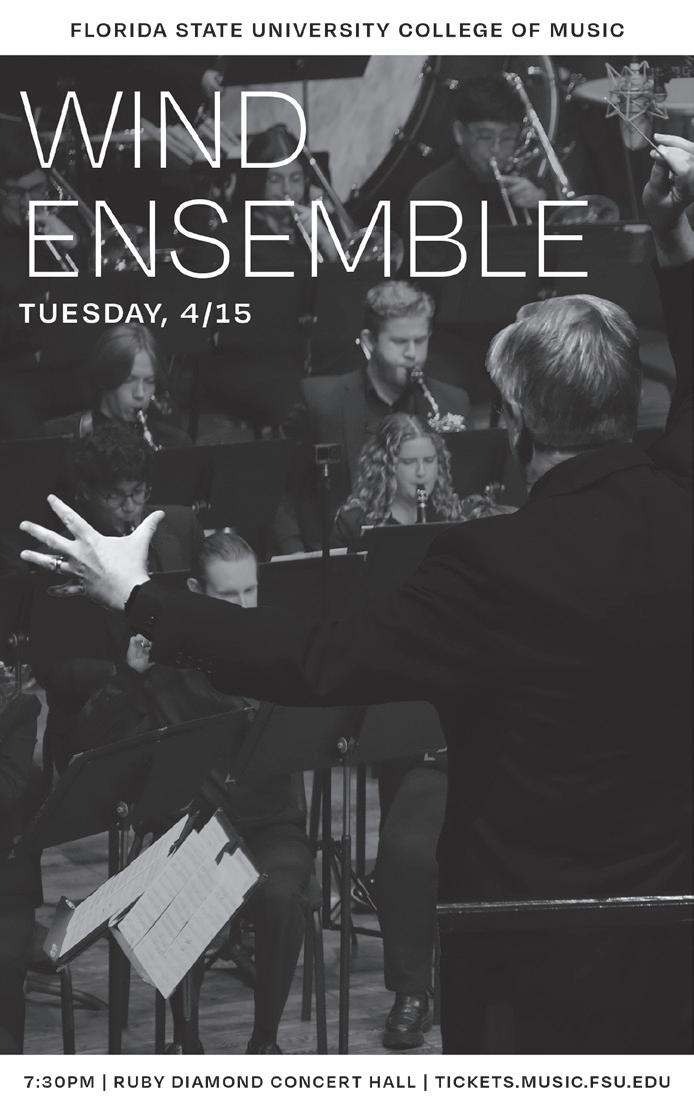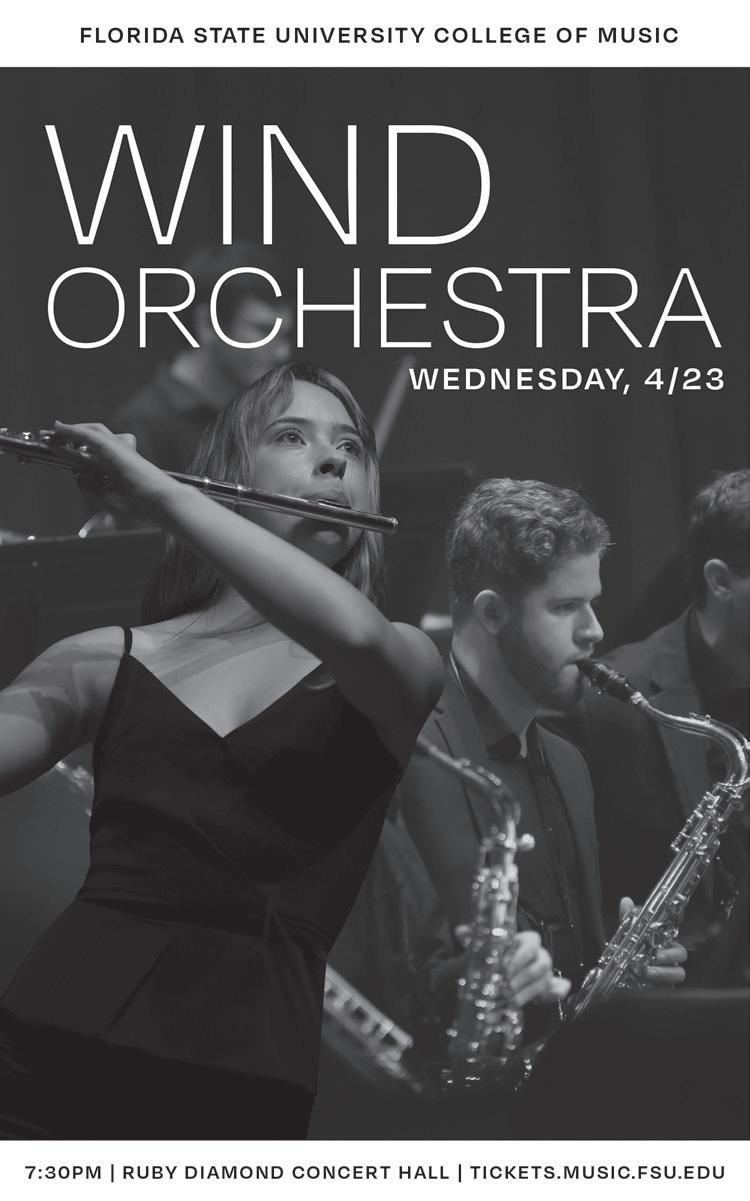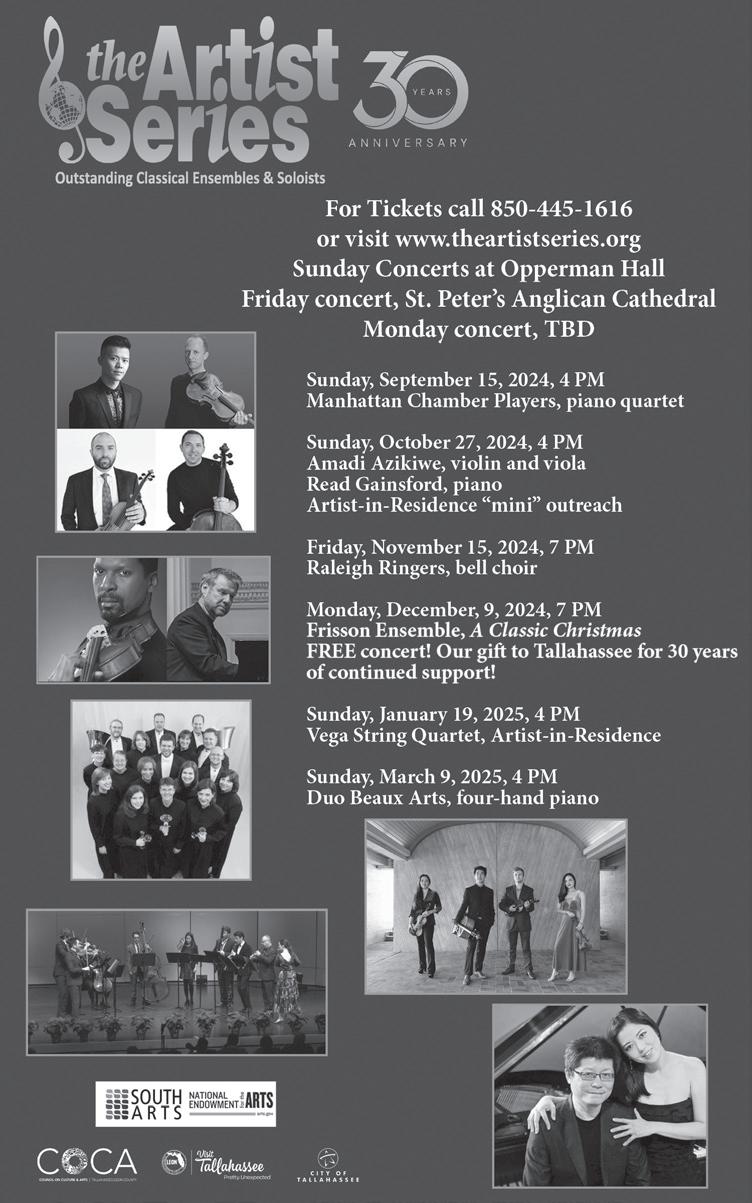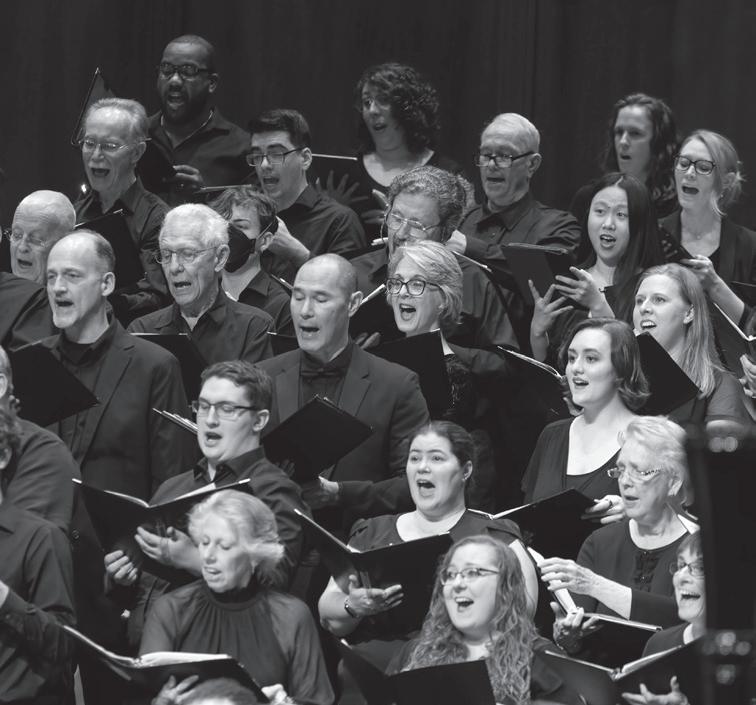ABOUT THE MUSIC DIRECTOR AND CONDUCTOR
Michael Hanawalt is the Director of Graduate Choral Studies at Florida State University, where he conducts the Chamber Choir, teaches graduate courses in conducting and choral literature, and serves as Artistic Director for the Tallahassee Community Chorus. Previous appointments include Director of Choral Activities at Wichita State University, Chorus Director at the Wichita Symphony Orchestra, and Visiting Instructor of Music at St. Olaf College.
Hanawalt is a founding member of the professional male vocal ensemble Cantus, based in Minneapolis, Minnesota. Throughout his eleven-year tenure with the organization, he recorded twelve CDs, participated in 200 educational outreach events, and performed in or oversaw the booking of over 500 concerts, including collaborations with the King’s Singers, the Boston Pops, the St. Paul Chamber Orchestra, and the Minnesota Orchestra. He also served for six years as Cantus’ Executive Director, overseeing its growth through organizational management, fundraising, and board development.
Active as a tenor soloist, Hanawalt is the winner of competitions held by the Schubert Club in Minneapolis, MN, Thursday Musical in St. Paul, MN, and the National Association of Teachers of Singing in Collegeville, MN. Recent past engagements include the Evangelist in J. S. Bach’s Matthäus-Passion with the Bethany College Messiah Festival of the Arts, as well as tenor soloist in Beethoven’s Symphony No. 9 with the Wichita Symphony Orchestra and in Mozart’s Requiem with the Tarleton State University choirs and orchestra and at Westfield State University in Massachusetts.
Hanawalt’s choral arrangements are published by Boosey & Hawkes, Colla Voce, and the Niel. A Kjos Music Company. His setting of “Amazing Grace” has been performed at two national conventions of the American Choral Director’s Association, and his arrangement of “Loch Lomond” is featured on the Cantus recording, Let Your Voice Be Heard.
Hanawalt holds a B.M. in Vocal Performance from St. Olaf College, an M.M. in Choral Conducting from Michigan State University, and a Ph.D. in Choral Music Education from Florida State University. He is the recipient of the 2016 Mickey and Pete Armstrong Faculty Award for Excellence in Teaching from the Wichita State University College of Fine Arts.
Ein deutsches Requiem
Johannes Brahms
I. Selig sind, die da Leid tragen
Blessed are those who mourn, for they shall be comforted.
Those who sow with tears will reap with joy. They go forth and weep, bearing precious seeds, and return rejoicing, bringing their sheaves.
IV. Wie lieblich sind deine Wohnungen
How lovely are your dwellings, O Lord of Hosts! My soul yearns and longs for the courts of the Lord; my body and soul rejoice in the living God.
Blessed are those who dwell in your house, those who praise you forever more.
VII. Selig sind die Toten
Blessed are the dead, who die in the Lord from now on. Yea, the Spirit says that they may rest from their labor, for their works follow after them.
The Little Match Girl Passion
David Lang
I. Come Daughter
Come, daughter
Help me, daughter
Help me cry
Look, daughter
Where, daughter
What, daughter
Who, daughter
Why, daughter
Guiltless daughter
Patient daughter
Gone
II. It Was Terribly Cold
It was terribly cold and nearly dark on the last evening of the old year, and the snow was falling fast. In the cold and the darkness, a poor little girl, with bare head and naked feet, roamed through the streets. It is true she had on a pair of slippers when she left home, but they were not of much use. They were very large, so large, indeed, that they had belonged to her mother, and the poor little creature had lost them in running across the street to avoid two carriages that were rolling along at a terrible rate. One of the slippers she could not find, and a boy seized upon the other and ran away with it, saying that he could use it as a cradle, when he had children of his own. So the little girl went on with her little naked feet, which were quite red and blue with the cold. So the little girl went on. So the little girl went on.
III. Dearest Heart
Dearest heart
Dearest heart
What did you do that was so wrong? What was so wrong?
Dearest heart
Dearest heart
Why is your sentence so hard?
IV. In an Old Apron
In an old apron she carried a number of matches, and had a bundle of them in her hands. No one had bought anything of her the whole day, nor had any one given her even a penny. Shivering with cold and hunger, she crept along; poor little child, she looked the picture of misery. The snowflakes fell on her long, fair hair, which hung in curls on her shoulders, but she regarded them not.
V. Penance and Remorse
Penance and remorse
Tear my sinful heart in two
My teardrops
May they fall like rain down upon your poor face
May they fall down like rain
My teardrops
Here, daughter, here I am I should be bound as you were bound
All that I deserve is
What you have endured
Penance and remorse.
Tear my sinful heart in two
My penance
My remorse
My penance
VI. Lights were Shining
Lights were shining from every window, and there was a savory smell of roast goose, for it was New-year’s eve- yes, she remembered that. In a corner, between two houses, one of which projected beyond the other, she sank down and huddled herself together. She had drawn her little feet under her, but she could not keep off the cold; and she dared not go home, for she had sold no matches, and could not take home even a penny of money. Her father would certainly beat her; besides, it was almost as cold at home as here, for they had only the roof to cover them, through which the wind howled, although the largest holes had been stopped up with straw and rags.
Her little hands were almost frozen with the cold. Her little hands were almost frozen with the cold.
VII. Patience, patience!
Patience.
Patience!
VIII. Ah! Perhaps
Ah! perhaps a burning match might be some good, if she could draw it from the bundle and strike it against the wall, just to warm her fingers. She drew one out-“scratch!” how it sputtered as it burnt! It gave a warm, bright light, like a little candle, as she held her hand over it. It was really a wonderful light. It seemed to the little girl that she was sitting by a large iron stove, with polished brass feet and a brass ornament. How the fire burned! and seemed so beautifully warm that the child stretched out her feet as if to warm them, when, lo! the flame of the match went out, the stove vanished, and she had only the remains of the half-burnt match in her hand. She rubbed another match on the wall. It burst into a flame, and where its light fell upon the wall it became as transparent as a veil, and she could see into the room. The table was covered with a snowy white table-cloth, on which stood a splendid dinner service, and a steaming roast goose, stuffed with apples and dried plums. And what was still more wonderful, the goose jumped down from the dish and waddled across the floor, with a knife and fork in its breast, to the little girl. Then the match went out, and there remained nothing but the thick, damp, cold wall before her.
IX. Have Mercy, my God
Have mercy, my God. Look here, my God.
See my tears fall. See my tears fall. Have mercy, my God. Have mercy. My eyes are crying. My heart is crying, my God. See my tears fall. See my tears fall, my God.
X. She Lighted Another Match
She lighted another match, and then she found herself sitting under a beautiful Christmas-tree. It was larger and more beautifully decorated than the one which she had seen through the glass door at the rich merchant’s. Thousands of tapers were burning upon the green branches, and colored pictures, like those she had seen in the show-windows, looked down upon it all. The little one stretched out her hand towards them, and the match went out. The Christmas lights rose higher and higher, till they looked to her like the stars in the sky. Then she saw a star fall, leaving behind it a bright streak of fire. “Someone is dying,” thought the little girl, for her old grandmother, the only one who had ever loved her, and who was now dead, had told her that when a star
XI. From the Sixth Hour
From the sixth hour there was darkness over all the land until the ninth hour. And at the ninth hour she cried out: Eli, Eli.
XII. She Again Rubbed a Match
She again rubbed a match on the wall, and the light shone round her; in the brightness stood her old grandmother, clear and shining, yet mild and loving in her appearance. “Grandmother,” cried the little one, “O take me with you; I know you will go away when the match burns out; you will vanish like the warm stove, the roast goose, and the large, glorious Christmas-tree.” And she made haste to light the whole bundle of matches, for she wished to keep her grandmother there. And the matches glowed with a light that was brighter than the noon-day, and her grandmother had never appeared so large or so beautiful. She took the little girl in her arms, and they both flew upwards in brightness and joy far above the earth, where there was neither cold nor hunger nor pain, for they were with God.
XIII. When it is Time for Me to Go
When it is time for me to go
Don’t go from me
When it is time for me to leave
Don’t leave me
When it is time for me to die
Stay with me
When I am most scared
Stay with me
XIV. In the Dawn of Morning
In the dawn of morning there lay the poor little one, with pale cheeks and smiling mouth, leaning against the wall; she had been frozen to death on the last evening of the year; and the New-year’s sun rose and shone upon a little corpse! The child still sat, in the stiffness of death, holding the matches in her hand, one bundle of which was burnt. “She tried to warm herself,” said some. No one imagined what beautiful things she had seen, nor into what glory she had entered with her grandmother, on New-year’s day.
XV. We Sit and Cry
We sit and cry
And call to you
Rest soft, daughter, rest soft
Where is your grave, daughter?
Where is your tomb?
Where is your resting place?
Rest soft, daughter, rest soft
Rest soft
Rest soft
Rest soft
Rest soft
You closed your eyes. I closed my eyes.
Rest soft
NOTES ON THE PROGRAM
Brahms: Ein deutsches Requiem
Johannes Brahms’ Ein deutsches Requiem, Op. 45, is a deeply moving and personal work that stands apart from traditional requiems. Rather than adhering to the Latin liturgical text, Brahms selected passages from the Lutheran Bible, crafting a meditation on grief, consolation, and the promise of peace.
Originally composed for full orchestra and chorus, Brahms later arranged a version for piano four hands and chorus, commonly known as the London Version (1871). This reduction was not merely practical but also intimate, allowing the work to be performed in smaller venues and domestic settings, bringing its profound emotional depth to a wider audience. The piano four hands accompaniment preserves the orchestral richness while offering a new clarity to the choral textures and harmonic structure.
This version of Ein deutsches Requiem emphasizes the work’s lyrical and expressive qualities, highlighting the interplay between the vocal lines and the intricate piano writing. It remains a testament to Brahms’s mastery of form and expression, offering a deeply personal and reflective experience for both performers and listeners alike.
Lang: The Little Match Girl Passion
I wanted to tell a story. A particular story — in fact, the story of The Little Match Girl by the Danish author Hans Christian Andersen. The original is ostensibly for children, and it has that shocking combination of danger and morality that many famous children’s stories do. A poor young girl, whose father beats her, tries unsuccessfully to sell matches on the
street, is ignored, and freezes to death. Through it all she somehow retains her Christian purity of spirit, but it is not a pretty story.
What drew me to The Little Match Girl is that the strength of the story lies not in its plot but in the fact that all its parts—the horror and the beauty—are constantly suffused with their opposites. The girl’s bitter present is locked together with the sweetness of her past memories; her poverty is always suffused with her hopefulness. There is a kind of naive equilibrium between suffering and hope.
There are many ways to tell this story. One could convincingly tell it as a story about faith or as an allegory about poverty. What has always interested me, however, is that Andersen tells this story as a kind of parable, drawing a religious and moral equivalency between the suffering of the poor girl and the suffering of Jesus. The girl suffers, is scorned by the crowd, dies, and is transfigured. I started wondering what secrets could be unlocked from this story if one took its Christian nature to its conclusion and unfolded it, as Christian composers have traditionally done in musical settings of the Passion of Jesus.
The most interesting thing about how the Passion story is told is that it can include texts other than the story itself. These texts are the reactions of the crowd, penitential thoughts, statements of general sorrow, shock, or remorse. These are devotional guideposts, the markers for our own responses to the story, and they have the effect of making the audience more than spectators to the sorrowful events onstage.
In a traditional Passion these responses can have a huge range—in Bach’s Saint Matthew Passion, these extra texts range from famous chorales that his congregation was expected to sing along with to completely invented characters, such as the “Daughter of Zion” and the “Chorus of Believers.” The Passion format—the telling of a story while simultaneously commenting upon it—has the effect of placing us in the middle of the action, and it gives the narrative a powerful inevitability.
My piece is called The Little Match Girl Passion and it sets Hans Christian Andersen’s story The Little Match Girl in the format of Bach’s Saint Matthew Passion, interspersing Andersen’s narrative with my versions of the crowd and character responses from Bach’s Passion. The text is by me, after texts by Han Christian Andersen, H. P. Paulli (the first translator of the story into English, in 1872), Picander (the nom de plume of Christian Friedrich Henrici, the librettist of Bach’s Saint Matthew Passion), and the Gospel according to Saint Matthew.
The word “passion” comes from the Latin word for suffering. There is no Bach in my piece and there is no Jesus—rather the suffering of the Little Match Girl has been substituted for Jesus’s, elevating (I hope) her sorrow to a higher plane.
— David Lang
University Chamber Choir Personnel
Michael Hanawalt, Director
Jeremy Moore and Harold Wright, Assistant Conductors
UNIVERSITY MUSICAL ASSOCIATES
2024-2025
Dean’s Circle
Les and Ruth Ruggles Akers
Dr. Pamela T. Brannon
Richard Dusenbury and Kathi Jaschke
Bob Parker
Margaret and Russ Dancy
Louie and Avon Doll
Patrick and Kathy Dunnigan
Kevin and Suzanne Fenton
Michael Killoren and Randy Nolan
Jim and Betty Ann Rodgers
Paula and Bill Smith
Jo and Tate Todd
Gold Circle
Albert and Darlene Oosterhof
Todd and Kelin Queen
Karen and Francis C. Skilling
Bret Whissel
Kathy Wright
Sustainer
Marty Beech
Kathryn M. Beggs
Karen Bradley
Scott and Suzi Brock
Steve and Pat Brock
Brian Causseaux and David Young
Bonnie and Pete Chamlis
Mary and Glenn Cole
Sandy and Jim Dafoe
William H. Davis
Patrice Dawson
F. Marshall Deterding and Dr. Kelley Lang
Diane and Jack Dowling
Ron Erichson / Beth Frederick
Joy and James Frank
William Fredrickson and Suzanne Rita
Byrnes
Ric Gauthier
Dr. and Mrs. Douglas Henricks
Dottie and John Hinkle
Todd S. Hinkle
Matt and Holly Hohmeister
The Jelks Family Foundation, Inc.
Alexander and Dawn Jiménez
Emory and Dorothy Johnson
Wade Johnson and Dr. Laura Rosner
Greg and Margo Jones
Martin Kavka and Tip Tomberlin
Dennis G. King, Esq.
Robert and Karen Large
Annelise Leysieffer
Nancy and Jeff Lickson
Linda and Bob Lovins
William and Gayle Manley
Ken and Kay Mayo
Robert R. and Patricia H. McDonald
DeWitt and Kathy Miller
Marian and Walter Moore
Ann W. Parramore
Almena and Brooks Pettit
Robert and Caryl Pierce
Mary Anne J. Price
David and Joanne Rasmussen
Mark and Carrie Renwick
Lawrence and Lisa Rubin
Ken and J.R. Saginario
Lane and Fraser Smith
Greg Springer and Jonathan Jackson
Richard Stevens and Ron Smith
Lee Stewart
Joyce Andrews
Stan and Tenley Barnes
Mary S. Bert
Marcia and Carl Bjerregaard
Beverley Booth
Sara Bourdeau
Joan and Kip Carpenter
Carol J. Cooper
Malcolm A. Craig
Rochelle M. Davis
Pamala J. Doffek
Judith Flanigan
John S. and Linda H. Fleming
Bonnie Fowler
L. Kathryn Funchess
Debbie Gibson
Ruth Godfrey-Sigler
Bryan and Nancy Goff
Harvey and Judy Goldman
Kay Hall
Michael Hanawalt and Justine Sasanfar
Dr. Albert Henry
Jerry and Bobbi Hill
Madeleine Hirsiger-Carr
Jane A. Hudson
Sally and Dr. Link Jarrett
Judith H. Jolly
Arline Kern
Jonathan Klepper and Jimmy Cole
Elna Kuhlmann
William and Ma’Su Sweeney
Anne van Meter and Howard Kessler
Steve M. Watkins and Karen S. Brown
David and Jane Watson
Stan Whaley and Brenda McCarthy
Sonya L. Wilcox
Jeanie Wood
Patron
Donna Legare
Mary Lovell
Joan Macmillan
Mary “Jo” Mansfield
Victoria Martinez
Neil Mooney
Ann and Don Morrow
Joel and Diana Padgett
Thomas Parrish
Marjorie J. Portnoi
Karalee Poschman
David Reed
Edward Reid
Carol Ryor
Jill Sandler
Paula S. Saunders
Jeanette Sickel
Susan Sokoll
Alice C. Spirakis
Judy and Mike Stone
George S. Sweat
Marjorie Turnbull
Ed Valla
Margaret Van Every
Sylvia B. Walford
Geoffrey and Simone Watts
Ingo Wiedenhoever
Drs. Heidi Louise and Christopher
Williams
Jeff Wright
Patricia C. Applegate
Michael Buchler and Nancy Rogers
Judy and Brian Buckner
Marian Christ
Mary and David Coburn
Carla Connors and Timothy Hoekman
Kirk and Michelle Croasmun
Jane Daniel
Geoffrey Deibel
Joseph Feheley
The Fennema Family
Fred Forsythe
Bonnie Gaughan-Bailey
Gene and Deborah Glotzbach
Laura Gayle Green
Richard Green
Donna H. Heald
Linda Husbands
Jayme and Tom Ice
Louise Jones
William and DeLaura Jones
Joseph Kraus
Paige McKay Kubik
Silky and John Labie
Dottie Lee
Sandra Leis
Eric Lewis
Mari Magro
Lealand and Kathleen McCharen
Annette Nelson
Janet Newburgh
Martha Onate
Becky Parsons
William Peterson
Joe, Amanda, Leah, Laura Price
Margaret S. Reed
Sanford A. Safron
John Scholz
Louise Simons
Janet Smith
Susan P. Stephens
Allison Taylor
C. Richard and Phrieda L. Tuten
Scott and LaDonna Wagers
Karen Wensing
Samantha Ynclan
Lifetime Members
Willa Almlof
Florence Helen Ashby
Mrs. Reubin Askew
Tom and Cathy Bishop
Nancy Bivins
Ramona D. Bowman
André and Eleanor Connan
Janis and Russell Courson
J.W. Richard Davis
Ginny Densmore
Carole Fiore
Patricia J. Flowers
Hilda Hunter
Julio Jiménez
Kirby W. and Margaret-Ray Kemper
Patsy Kickliter
Corporate Sponsors
Beethoven & Company
Anthony M. Komlyn
Fred Kreimer
Beverly Locke-Ewald
Cliff and Mary Madsen
Ralph and Sue Mancuso
Meredith and Elsa L. McKinney
Ermine M. Owenby
Mike and Judy Pate
Laura and Sam Rogers
Dr. Louis St. Petery
Sharon Stone
Donna C. Tharpe
Brig. Gen. and Mrs. William B. Webb
Rick and Joan West
John L. and Linda M. Williams
Business Sponsors
WFSU Public Broadcast Center
The University Musical Associates is the community support organization for the FSU College of Music. The primary purposes of the group are to develop audiences for College of Music performances, to assist outstanding students in enriching their musical education and careers, and to support quality education and cultural activities for the Tallahassee community. If you would like information about joining the University Musical Associates, please contact Kim Shively, Director of Special Programs, at kshively@fsu.edu or 850-645-5453.
The Florida State University provides accommodations for persons with disabilities. Please notify the College of Music at 850-644-3424 at least five business days prior to a musical event if accommodation for disability or publication in alternative format is needed.







